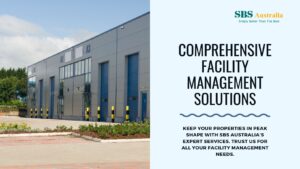Property owners are usually the losers when it comes to building deficiencies and the high costs involved in carrying out remedial work. That is why getting a Building Defect Report to protect yourself is essential. At SBS, we can help you avoid serious issues arising from building defects.
Shared housing is becoming the norm in what has been dubbed the “new normal” in Melbourne’s housing market.
Whether you are an owner, tenant or property investor, you need the latest information on what to look for and what to watch out for.
Mandatory protection
The Strata Schemes Management Bill 2015, which implemented various reforms requires a 2% bond from the developer to cover the cost of any defects in the structures. If no defects are found during inspections within the first two years after occupancy, the developer can claim the money back. However, if an interim or final report shows a defect, the owner may use this money to have the defect rectified. If the developer or contractor does not respond to a claim within the statutory warranty period, you can rely on the assistance of Consumer Affairs Victoria to resolve the dispute.
The Victoria government is continually monitoring measures to more effectively protect owners from substandard construction practices, to avoid the prospect of owners having to take out huge loans to fix problems.
Lessons learned
The incident at Sydney’s Opal Tower in 2019 left property owners reeling, highlighting loopholes in Australia’s building codes and the need for tougher enforcement.
The aftermath of the Opal Towers incident raised serious questions about the safety of people buying new or recently built units. The inspector’s findings highlighted serious shortcomings that affected residents and owners.
Building defects are more common than you may think
In 2019, Mozo found that most homeowners who bought new homes in the last 10 years suffered issues with building materials. Cracks in internal and external structures, gutter defects, construction defects and structural problems were the most frequently reported issues among owners.
While many people working in the industry blame the lack of proper building codes and high costs for building materials, many say mistakes are common in Melbourne’s sprawling residential buildings.
The Strata Community Association says Australia’s poor building record is a huge burden on owners and communities. In response, the sector has called on the government to set up a fund to help owners and is calling for new building audits to be thoroughly reviewed.
So, what is a building defect?
There are many problems related to structural deficiencies, and as an owner or investor, you should be aware of all the defects in a building and what kind of risk they might pose.
Common problems include:
- Water penetration from external guttering faults
- Internal water leaks
- Structural cracks (internal or external)
- Building movement/subsidence
- Defective roofing
- Faulty plumbing
- Tiling problems
- Excessive noise transfer
- Defective balcony railings/structures
- Lack of or inadequate fire safety measures
- Faulty electrical installations
- Inadequate or incorrectly installed materials
In some cases, such as swimming pools, a redesign in accordance with state regulations can solve the problem, and the structure or stability of the building is not affected.
However, sometimes a combination of factors can lead to serious problems, which may be due to insufficient insulation, inadequate ventilation or inadequate drainage systems.
Cladding and drainage system issues that arise due to design and construction defects can sometimes require a complete and very costly overhaul.
Recommendations
- Obtain a building inspection report.
- Identify and prioritise errors, and make a plan to deal with them, even if they are costly to fix.
- Ensure that all parties involved in the development, management and maintenance are always in compliance.
How we can help
SBS can conduct inspections and issue certifications promptly. It is also important to keep the certificates up-to-date and handy in the event of any issues arising.
Our inspectors are registered building experts, trusted by all building authorities and courts, including VCAT and VBA and other government agencies. They are responsible for assessing any damage caused after a building is built, and can evaluate poor workmanship and report deficiencies.
SBS staff are highly qualified and our reports are compiled by a team of structural engineering experts. Avoid problems related to building defects – contact us today!







